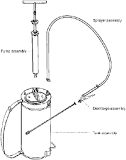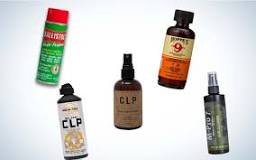Pesticides can linger in the soil for varying lengths of time, depending on several factors, but most pesticides can remain in the soil from a few days to several years. This duration is influenced by the type of pesticide used, soil conditions, and environmental factors like temperature and moisture.
Factors Affecting Pesticide Persistence
Type of Pesticide
Different pesticides have different chemical compositions. For example:
- Herbicides like glyphosate may break down faster than some insecticides or fungicides.
- Biopesticides, which are derived from natural materials, typically degrade more quickly than synthetic options.
Soil Conditions
Soil type and health play a significant role.
- Sandy soils often allow for quicker leaching and degradation of pesticides.
- Clay soils, on the other hand, can hold onto chemicals longer due to their dense structure.
Environmental Factors
Weather conditions can greatly affect how long pesticides last in the soil.
- Moisture: Wet conditions can lead to leaching, while dry conditions may cause pesticides to persist longer.
- Temperature: Higher temperatures generally speed up chemical breakdown.
The Impact of Pesticides on Soil Health
Pesticides don’t just disappear; they can affect soil health and biodiversity. Here’s how:
- Microbial Life: Many pesticides can harm beneficial microbes that help decompose organic matter and promote nutrient cycling.
- Soil Structure: Long-term use of certain pesticides can lead to soil compaction and reduced aeration, affecting plant growth.
FAQ
How do I know if pesticides are still in my soil?
You can test your soil through a lab analysis that checks for pesticide residues. Many agricultural extension services offer this service.
Are there safe levels of pesticide residues?
There is ongoing debate about what constitutes a “safe” level. Some studies suggest that even low levels of pesticide residues could be harmful over time, especially to sensitive populations like children.
What can I do to reduce pesticide persistence in my soil?
Practices such as crop rotation, using organic alternatives, and improving soil health through composting can help reduce the need for chemical inputs and mitigate their effects.
In summary, understanding how long pesticides stay in the soil is crucial for making informed decisions about their use. By considering factors like the type of pesticide, soil conditions, and environmental influences, we can better manage their impact on our ecosystems. Transitioning to more sustainable practices not only helps reduce pesticide reliance but also fosters healthier soils for future generations.







